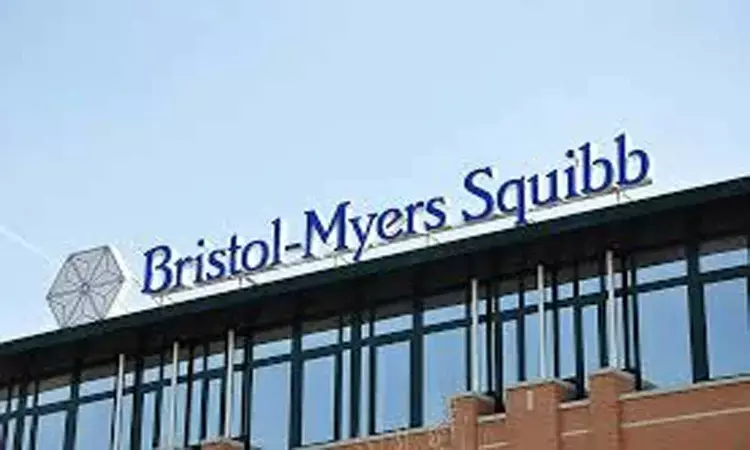- Home
- Medical news & Guidelines
- Anesthesiology
- Cardiology and CTVS
- Critical Care
- Dentistry
- Dermatology
- Diabetes and Endocrinology
- ENT
- Gastroenterology
- Medicine
- Nephrology
- Neurology
- Obstretics-Gynaecology
- Oncology
- Ophthalmology
- Orthopaedics
- Pediatrics-Neonatology
- Psychiatry
- Pulmonology
- Radiology
- Surgery
- Urology
- Laboratory Medicine
- Diet
- Nursing
- Paramedical
- Physiotherapy
- Health news
- Fact Check
- Bone Health Fact Check
- Brain Health Fact Check
- Cancer Related Fact Check
- Child Care Fact Check
- Dental and oral health fact check
- Diabetes and metabolic health fact check
- Diet and Nutrition Fact Check
- Eye and ENT Care Fact Check
- Fitness fact check
- Gut health fact check
- Heart health fact check
- Kidney health fact check
- Medical education fact check
- Men's health fact check
- Respiratory fact check
- Skin and hair care fact check
- Vaccine and Immunization fact check
- Women's health fact check
- AYUSH
- State News
- Andaman and Nicobar Islands
- Andhra Pradesh
- Arunachal Pradesh
- Assam
- Bihar
- Chandigarh
- Chattisgarh
- Dadra and Nagar Haveli
- Daman and Diu
- Delhi
- Goa
- Gujarat
- Haryana
- Himachal Pradesh
- Jammu & Kashmir
- Jharkhand
- Karnataka
- Kerala
- Ladakh
- Lakshadweep
- Madhya Pradesh
- Maharashtra
- Manipur
- Meghalaya
- Mizoram
- Nagaland
- Odisha
- Puducherry
- Punjab
- Rajasthan
- Sikkim
- Tamil Nadu
- Telangana
- Tripura
- Uttar Pradesh
- Uttrakhand
- West Bengal
- Medical Education
- Industry
Bristol Myers Squibb Onureg gets USFDA nod to treat Acute Myeloid Leukemia

Princeton: Bristol Myers Squibb has announced that the U.S. Food and Drug Administration (FDA) has approved Onureg® (azacitidine 300 mg tablets, CC-486) for the continued treatment of adult patients with acute myeloid leukemia (AML) who achieved first complete remission (CR) or CR with incomplete blood count recovery (CRi) following intensive induction chemotherapy and who are not able to complete intensive curative therapy. AML is one of the most common acute leukemias in adults.
The approval is based on results from the pivotal Phase 3 QUAZAR® AML-001 study in which treatment with Onureg resulted in a statistically significant and clinically meaningful improvement in overall survival (OS), the study's primary endpoint, of nearly 10 months compared to placebo. Median OS from time of randomization was greater than two years (24.7 months; 95% Confidence Interval [CI]: 18.7 to 30.5) among patients who received Onureg compared to 14.8 months (95% CI: 11.7 to 17.6) among patients receiving placebo (Hazard Ratio [HR]: 0.69, 95% CI: 0.55 to 0.86; p=0.0009). Onureg was continued until disease progression or unacceptable toxicity. Onureg has warnings and precautions for risks of substitution with other azacitidine products, myelosuppression, increased early mortality in patients with myelodysplastic syndromes (MDS) and embryo-fetal toxicity.
Due to substantial differences in the pharmacokinetic parameters, Onureg should not be substituted for intravenous or subcutaneous azacitidine as it may result in a fatal adverse reaction. New or worsening Grade 3 or 4 neutropenia and thrombocytopenia occurred in 49% and 22% of patients who received Onureg, respectively. Febrile neutropenia occurred in 12% of patients. Complete blood counts should be monitored, dosing should be modified as recommended and standard supportive care should be provided if myelosuppression occurs. Enrollment was discontinued early in the study AZA-MDS-003 due to a higher incidence of early fatal and/or serious adverse reactions in the Onureg arm compared with the placebo arm. Treatment of MDS with Onureg is not recommended outside of controlled trials. Onureg can cause fetal harm when administered to a pregnant woman.
"Continued treatment with Onureg demonstrated an overall survival benefit in adults with AML who had achieved first complete remission in the QUAZAR® AML-001 study and, notably, it has the potential to do this in a convenient manner, given its once daily oral formulation," said Andrew Wei, MBBS, Ph.D., QUAZAR® AML-001 lead investigator, Alfred Hospital and Monash University, Melbourne, Australia. "This approval should help establish continued treatment with Onureg as a standard component of AML therapy for adults who achieved first complete remission following chemotherapy and who cannot proceed to intensive curative therapy, like hematopoietic stem cell transplant."
"The FDA approval of Onureg is the culmination of over a decade of research and 13 pre-clinical and clinical trials. We are grateful to the patients, families and caregivers who participated in and supported these trials, and who ultimately made today's advancement possible," said Giovanni Caforio, M.D., chairman and chief executive officer, Bristol Myers Squibb. "This milestone is representative of our commitment to helping patients with hard-to-treat cancers live longer, and the approval of Onureg as an oral therapy option for patients is more relevant now than ever as the world continues to navigate the COVID-19 pandemic."
The New Drug Application was granted Priority Review Designation by the FDA, and a Marketing Authorization Application (MAA) for this indication was validated by the European Medicines Agency in May 2020.
Ruchika Sharma joined Medical Dialogue as an Correspondent for the Business Section in 2019. She covers all the updates in the Pharmaceutical field, Policy, Insurance, Business Healthcare, Medical News, Health News, Pharma News, Healthcare and Investment. She has completed her B.Com from Delhi University and then pursued postgraduation in M.Com. She can be contacted at editorial@medicaldialogues.in Contact no. 011-43720751


